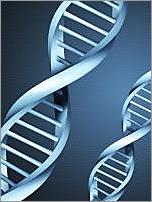
Gloria Petersen, PhD (Mayo)
Barbara Koenig, PhD, RN (UCSF)
Susan M. Wolf, JD (University of Minnesota)
This empirical and normative bioethics research project was created to guide policy and practice about the disclosure of genomic incidental findings (GIFD), a much-debated topic. With ethical guidance from a multidisciplinary ELSI Working Group, we conducted an experiment designed to develop strategies for offering incidental findings to family members of probands in a biobank for pancreatic cancer. Given that the majority of the pancreatic cancer probands are deceased, many concerns needed to be addressed: Who should be offered the findings, given that notification of the proband’s legal next of kin may not assure that biologically at-risk family members are informed? Since relatives were not involved in the original biobank informed consent process, how should re-contact be managed? What disclosure procedures best meet family members’ concerns? Is there an ethical threshold for determining when the researcher is obligated to offer GIFD? Our approach was informed by studying the preferences of biobank research participants (including kin). A partnership among 3 PIs—a genetic epidemiologist who directs the SPORE biobank (Gloria Petersen), an empirical researcher (Barbara Koenig), and a bioethics and law scholar (Susan Wolf)—combined the strengths of Mayo Clinic and the University of Minnesota. This project generated much-needed data on proband and family preferences, produced detailed analyses of the legal and ethical issues raised, created consensus recommendations, devised methods for honoring preferences, and advanced sound biobank governance.
Project outcomes
- Publication of consensus recommendations:
- Wolf SM, Branum R, Koenig BA, Petersen GM, Berry SA, Beskow LM, Daly MB, Fernandez CV, Green RC, LeRoy BS, Lindor NM, O'Rourke PP, Radecki Breitkopf C, Rothstein MA, Van Ness B, Wilfond BS. Returning a Research Participant’s Genomic Results to Relatives: Analysis and Recommendations. Journal of Law, Medicine & Ethics 2015;43(3):440-463. Download PDF (2.12 MB)
- Wolf SM, Scholtes E, Koenig BA, Petersen GM, Berry SA, Beskow LM, Daly MB, Fernandez CV, Green RC, LeRoy BS, Lindor NM, O'Rourke PP, Radecki Breitkopf C, Rothstein MA, Van Ness B, Wilfond BS. Pragmatic Tools for Sharing Genomic Research Results with the Relatives of Living and Deceased Research Participants. Journal of Law, Medicine & Ethics 2018;46(1):87-109. Download PDF (888.84 KB)
- A symposium, "Should We Offer Genomic Research Results to a Participant's Family, Including After the Participant's Death?" published in the Journal of Law, Medicine & Ethics
- A special edition of Genetic Testing and Biological Markers
- A public conference held in November, 2014
- Brocher Workshop on "Returning Genetic Results in Biobanks: Opening an International Dialogue"
Supplemental Materials
The following supplemental materials are related to the following paper: Gordon DR, Radecki Breitkopf C, Robinson M, Petersen WO, Egginton JS, Chaffee KG, Peterson GM, Wolf SM, Koenig BA. Should Researchers Offer Results to Family Members of Cancer Biobank Participants? A Mixed-Methods Study of Proband and Family Preferences. AJOB Empirical Bioethics 2018:1-22. They are part of the NIH-funded project Disclosing Genomic Incidental Findings in a Cancer Biobank: An ELSI Experiment.